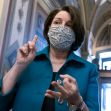On Tuesday, November 17, the law enforcement entities of the United States and South Korea met virtually to sign an antitrust Memorandum of Understanding (MOU). The United States Department of Justice, represented by Assistant Attorney General Makan Delrahim, and the Korean Prosecution Service, represented by Prosecutor General Yoon Seok-Youl, committed to increasing cooperation when combatting criminal antitrust violations within each other’s countries.
Highlights of the MOU include participating in joint training, a commitment to “exchange experience the enforcement of their criminal cartel laws,” to maintain the confidentiality of information shared, and to consider each country’s interest and objectives before acting to enforce antitrust laws.
The DOJ’s press release regarding the signing stated “KPS has taken on a more prominent role in criminal antitrust enforcement in South Korea, and the MOU is intended to further strengthen the relationship between the two law enforcement partners as they work together to root out harmful collusive conduct that affects consumers in both countries.”
According to the US Department of Justice (DOJ), antitrust laws "protect economic freedom" both domestically and internationally. These laws ensure competition, which the DOJ indicates provides "lower prices, better quality, and greater choice” in all markets. The DOJ further states that "competition also tests and hardens American companies at home, the better to succeed abroad."
The mission of antitrust laws is to promote diversity by ensuring a market has more than one supplier for a good or service. These laws are focused on breaking up companies that illegally obtained a monopoly or that begin acting as a cartel by vowing to not compete with one another in a market, fixing prices, or dividing up the market between themselves. As the economy continues to become more globalized, these cartels are even more dangerous to countries’ markets that are just emerging or that don’t have a relative or comparative advantage.
South Korea is home to the fastest wireless internet speed and is one of the top ten m-commerce countries in the world. M-commerce is the buying and selling of goods and services through wireless handheld devices. After initial doubts this market would improve, sales on smartphones and tablets have increased over the past several years, accounting for over a quarter of the e-commerce market in 2019, according to Business Insider.
The United States and South Korea signed a Free Trade Agreement (FTA) that went into effect on March 15, 2012, after signing the agreement in 2007. As of 2019, South Korea is the sixth-largest goods trading supplier of the US, while the US is the seventh-largest goods exporter for South Korea.
In Assistant Attorney General Delrahim’s remarks on the signing, he stated: “This Memorandum of Understanding serves to memorialize and formalize what we have been implementing over the past few years.” The United States and South Korea had signed a similar agreement five years ago, in September 2015, with the Korean Fair Trade Commission. Both MOUs were described as a formalized recognition of the progress the two countries have made collectively and the shared responsibility the two countries take on when fighting the buildup of cartels or other illegal monopolies.
Assistant Attorney General Makan Delrahim was confirmed to his position as leader of the Antitrust Division of the Department of Justice on September 27, 2017. Before this, Delrahim was President Trump’s Deputy White House Counsel after supporting the President through his successful 2016 campaign for President. He also served under President George W. Bush as an antitrust lawyer. The Antitrust Division focuses on overseeing cartel formation, illegal mergers, and enforcing antitrust laws, both domestic and international.
Like Delrahim, Prosecutor General Yoon Seok-Youl is a relatively new political appointee to the position in July 2019. His two-year term ends in July of 2021. Currently, Yoon has been rising in the polls as a prospective candidate to run in the 2022 South Korean Presidency Election.
This signing of this promise to cooperate comes at a time when the US and South Korea have seen positive growth in trade between the countries. Just a few months earlier, in March 2020, South Korea complied with an extradition order by the US Department of Justice for Kim Eun-Soo, a former executive of Continental Automotive Korea. He pleaded guilty to assisting in creating a global auto-parts cartel. He became the first South Korean to be extradited to the United States for such a charge.
This MOU further enhances the extradition agreements the two countries have. Kim Eun-Soo was not the first to be extradited to the United States on antitrust charges. However, his extradition serves as a critical example for others who are violating international antitrust laws in the East Asia region.
The MOU was also signed just two days after the signing of the Regional Comprehensive Economic Partnership (RCEP). This deal, led by China, brings together 14 countries in Southeast Asia and is seen as a step to curtail or balance American influence in the region. While the MOU is not legally binding, it does show the willingness of both countries to work together to protect the productive competition of companies based in either country.






